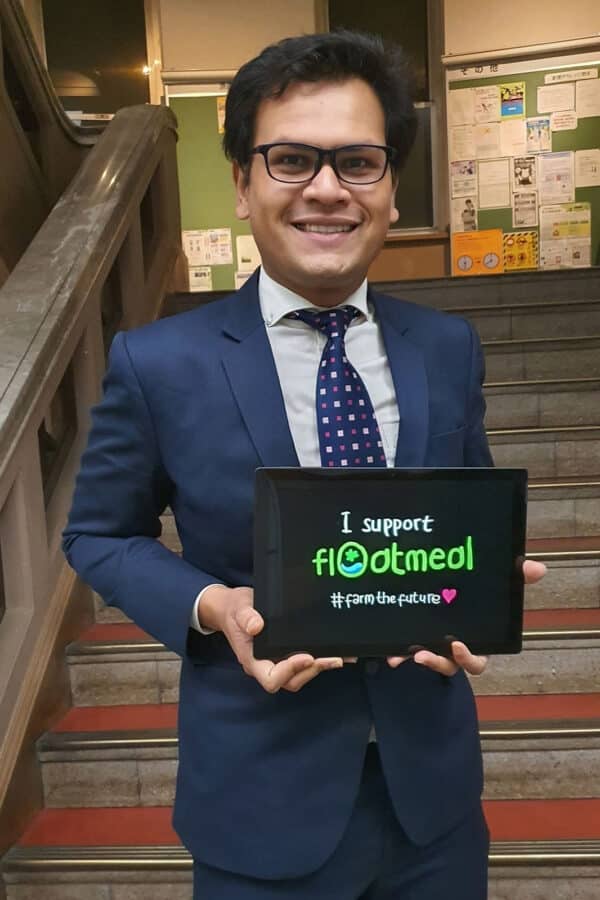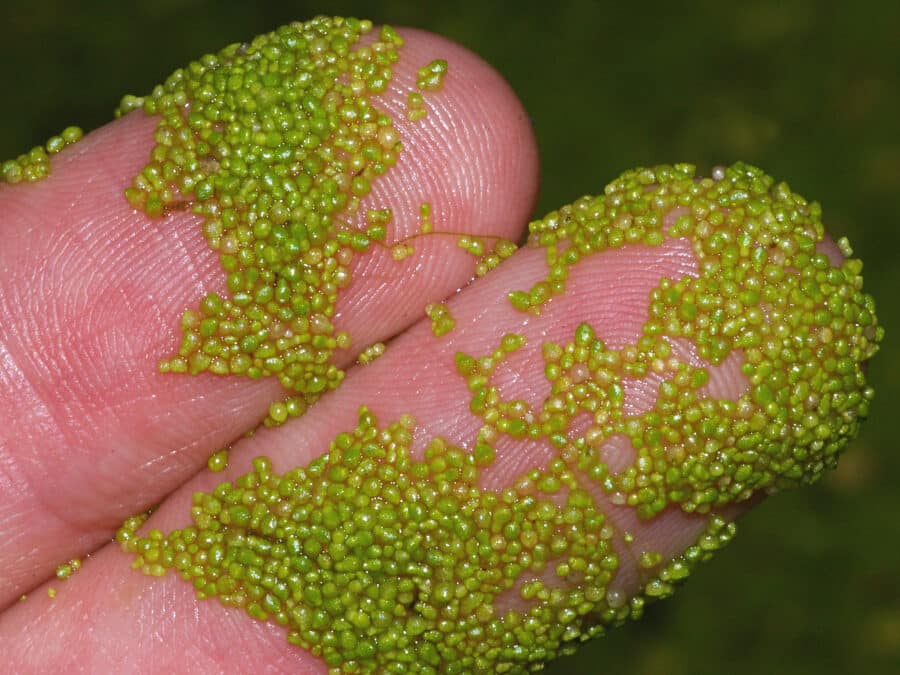Sajjad Kamal, a PhD candidate in Microbiology at Hokkaidō University and 2017 MEXT Scholar, in addition to telling us about his study process, explains about his business plan, which involves using curious tiny plants —with the tiniest known flowers— as a superfood.

Why did you decide to apply for the MEXT scholarship?
I come from Bangladesh, where the MEXT scholarship is very famous, because in addition to Japan having many development programs with my country, the bilateral relations between them are very good.
But that also means that the competition to win a MEXT scholarship in Bangladesh is very big. In fact, the scholarship announcements are made through an annual newspaper-like circular. If I remember correctly, in the year I won the scholarship there were around 7000 applicants, out of which the Embassy selected 12.
One of my university professors won a MEXT scholarship several years ago. He did his studies in Japan, got married, and then returned to Bangladesh. He used to give us, his students, Japanese sweets and snacks as gifts and souvenirs; he even introduced us to Japanese fermented food by giving us nattō. Through his stories and experiences, I became interested in Japan, so that prompted me to try to earn a scholarship.
However, my non-academic interest in Japan comes from before that: I’m a gamer —video-games!—. I guess many of you reading this article will know what I mean, or perhaps share my fascination, so I don’t think I need to explain any further.
The difference is that I didn’t come to study about ninjas or samurai; I came to study environmental science to reduce the effect of climate change.
What was it like for you to study in Japan?
My master’s degree was a blissful time. I had a lot of fun. In fact, I already came to Japan with a master’s degree and two years of work experience. However, knowing that the scholarship could offer me the Ph.D. after my master’s degree, I decided to enter a new master’s program here, to have time to absorb the culture and language a bit. I also made many friends.
The PhD has been much more demanding because the research is done alone, so it has been a more learning-centered process. For example, during my master’s degree I used to go to parties and meetings almost every night. But nowadays I have meetings with my University lab colleagues almost every day.
Let me use this space to also add an explanation about moving from master’s to PhD fellowship as a MEXT Scholar: it is very much about having a quota available. This means that the University is the one that must recommend the student to the MEXT to use this quota, so that the MEXT can allocate the economic resources to extend the time of studies.
Why did you decide to start a business in Japan?
My research topic is quite simple: it is about developing technologies towards the cultivation of plants that grow very fast —more than ten times faster than normal plants— as food. This plant of the genus Wolffia is not yet a popularly consumed product anywhere in the world, except for some parts of South East Asia, and furthermore, it requires a somewhat complicated cultivation process.

But with that in mind, I decided to focus on a start-up that can technologize and massify the production of this plant as food; it is full of protein and vitamin B12. One of the goals would be to offer this system to farmers in developing countries.
We have examples of how new foods can be effectively introduced to the market, as was the case with spirulina and euglena many years ago. People did not use to consume them, but now they are part of the diet of many. In the case of our plant, we have the advantage that it also grows at an accelerated rate.
Basically, my business, “Floatmeal”, is presented as an initiative to counteract the effects of climate change and famine using this superfood. The genus wolffia is also known as “duckweed”, and in northern Thailand, where it is consumed regularly, it is called “Khai-nam”. After being pulverized, the final product doesn’t just look like macha; it also tastes like macha.
What is the most important thing you have learned in Japan?
I try to learn every day, so maybe it’s hard for me to decide on just one thing; but if I have to choose one, it would be to be patient. Living here has taught me to wait a bit, because sooner or later, if things are done right, they will work out.
However, if I had to tell my kōhai something, it would be to have no regrets or doubts. Whatever makes you happy, go for it. Youth is soon gone. Finishing a master’s degree is not impressively difficult. It is, in fact, harder to fail it. If you are reading this and you are just starting your master’s degree in Japan, give importance to your social life and mental health.
Written by: Andrés Burgos, Ecuador, MEXT Scholar, Keio University.

